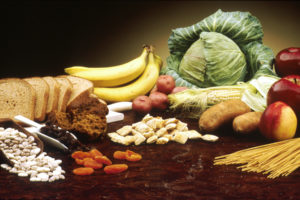 A recent large study found another great reason for being physically active. The researchers found that physical fitness is linked to atrial fibrillation (AFib) and stroke.
A recent large study found another great reason for being physically active. The researchers found that physical fitness is linked to atrial fibrillation (AFib) and stroke.
Atrial fibrillation is a heart rhythm disorder, and having it is linked to a much higher risk of having a stroke. The researchers found that being physically fit (exercise! physical activity!) is linked to lower rates of atrial fibrillation, stroke, and MACE (major adverse cardiovascular events, such as stroke or heart attack leading to death).
There was an eleven year follow up of the approximately 15,450 participants, all of whom did not have atrial fibrillation at the start of the study. The study tested the physical fitness of the participants (average age 55 years) on an exercise treadmill.
Bottom line: Physical activity and physical fitness are important for reducing the risk of developing heart problems, including atrial fibrillation. Yes, even taking walks (brisk is best) will improve physical fitness.
From Science Daily: Keep fit to avoid heart rhythm disorder and stroke
A study in more than 15,000 people has found that physical fitness is linked with a lower likelihood of developing atrial fibrillation and stroke. The research is presented at ESC Congress 2023.
...continue reading "Being Physical Fit Is Linked To A Lower Risk of Atrial Fibrillation and Stroke"

 Another recent study found that consuming artificial sweeteners do harm. In August a study found that artificial sweeteners alter both
Another recent study found that consuming artificial sweeteners do harm. In August a study found that artificial sweeteners alter both  There is growing evidence that the presence of certain species of bacteria in the gut microbiome are associated with a higher stroke risk, while other bacteria are associated with a lower risk and health. Two
There is growing evidence that the presence of certain species of bacteria in the gut microbiome are associated with a higher stroke risk, while other bacteria are associated with a lower risk and health. Two  To improve your gut microbes and lower stroke risk: most important is to improve your diet (eat a healthy diet rich in fruits, vegetables, whole grains, nuts, seeds, legumes, some fermented foods, and try to avoid highly processed foods). Also, good for gut microbes: increase your physical activity or amounts of exercise, don't smoke, and try to maintain a healthy weight. Another option is getting a fecal microbial transplant.
To improve your gut microbes and lower stroke risk: most important is to improve your diet (eat a healthy diet rich in fruits, vegetables, whole grains, nuts, seeds, legumes, some fermented foods, and try to avoid highly processed foods). Also, good for gut microbes: increase your physical activity or amounts of exercise, don't smoke, and try to maintain a healthy weight. Another option is getting a fecal microbial transplant. Some good news - a recent
Some good news - a recent  The results of a
The results of a  Once again a study found health benefits from eating a diet rich in plant-based foods, such as vegetables, fruits, whole grains, legumes, beans, nuts, and seeds This time the health benefit was a lower incidence of stroke.
Once again a study found health benefits from eating a diet rich in plant-based foods, such as vegetables, fruits, whole grains, legumes, beans, nuts, and seeds This time the health benefit was a lower incidence of stroke. Do you routinely work more than 10 hours a day at your job? Uh-oh. A
Do you routinely work more than 10 hours a day at your job? Uh-oh. A  Many, many people wind up taking numerous
Many, many people wind up taking numerous